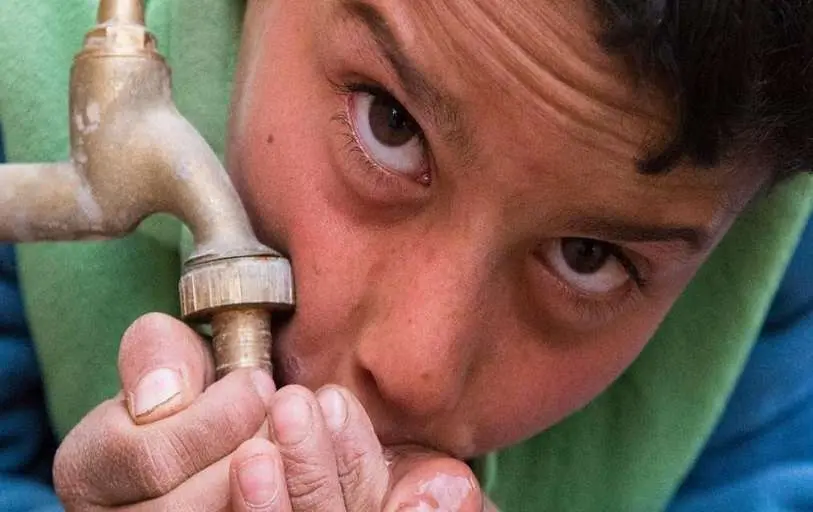Strong international mechanisms urgently needed to avert global water crisis

The new edition of the UN World Water Development Report, launched on the eve of the 2023 UN Water Conference, focuses on two themes: partnerships and cooperation.
Published by the United Nations Educational, Scientific and Cultural Organisation (UNESCO), the report highlights ways in which actors can work together to overcome common challenges.
"There is an urgent need for strong international mechanisms to prevent the global water crisis from spiralling out of control," said UNESCO Director-General Audrey Azoulay. "Water is our common future, and it is essential that we act together to share it equitably and manage it sustainably".
According to the report, 2 billion people in the world lack access to safe drinking water and 3.6 billion lack access to safely managed sanitation.
The global urban population facing water scarcity is expected to double from 930 million in 2016 to between 1.7 and 2.4 billion people in 2050.
The increasing incidence of extreme and prolonged droughts is also affecting ecosystems, with serious consequences for animal and plant species, the report says.

Richard Connor, the report's editor-in-chief, told reporters at a press conference at UN headquarters before the launch that "uncertainty is growing".
"If we don't address it, there will be a global crisis," he said, pointing to growing shortages that reflect declining availability and rising demand, from urban and industrial growth to agriculture, which alone consumes 70 per cent of the world's supply.
Partnership building and cooperation are key to realising human rights to water and overcoming existing challenges, he said.
Explaining the picture of such scarcity, he said that economic water scarcity is a major problem, where governments do not provide secure access, such as in central Africa, where water flows. Meanwhile, physical shortages are worse in desert areas, including northern India and across the Middle East.
In response to journalists' questions about possible "water wars" in the face of a global crisis, Connor said that this essential natural resource "tends to lead to peace and cooperation rather than conflict".
Strengthening transboundary cooperation is the main tool to avoid conflict and escalating tensions, he said, noting that 153 countries share nearly 900 rivers, lakes and water systems, and more than half have signed agreements
The report, which details experiences - both good and bad - of partners' collaborative efforts, explains how accelerating progress in achieving the related goals of the 2030 Agenda depends on enhancing positive and meaningful cooperation between the water, sanitation and broader development communities.
Innovations during the onset of the COVID 19 pandemic saw partnerships formed between health and wastewater authorities, who together were able to track the disease and provide critical data in real time, he said.
From city dwellers to smallholder farmers, partnerships have produced mutually beneficial results. By investing in upland farming communities, farmers can benefit in ways that help the cities they feed.
States and stakeholders can cooperate in areas such as flood and pollution control, data sharing and co-financing. From wastewater treatment systems to wetland protection, efforts that help reduce greenhouse gas emissions should "open the door to greater collaboration and increase access to water funds," he said.
"However, the water community is not tapping into those resources," he said, expressing hope that the report and the conference can trigger productive discussions and results on the ground.
Johannes Cullmann, special scientific advisor to the president of the World Meteorological Organisation (WMO), said that "it is a matter of investing wisely".
While water resources and how they are managed influence almost every aspect of sustainable development, including the 17 Sustainable Development Goals of the 2030 Agenda, he said current investments need to quadruple to reach the estimated $600 billion to $1 trillion a year needed to realise Goal 6 on universal access to water and sanitation.
"Cooperation is at the heart of sustainable development, and water is an immensely powerful connector," he said. "We must not negotiate water; we must deliberate about it".
Water, after all, is a human right, he said.
Indeed, water must be "managed as a common good, not a commodity," a group of 18 independent experts and UN special rapporteurs said in a joint statement on Tuesday.
"Considering water as a commodity or a business opportunity will leave behind those who cannot access or pay market prices," they said, adding that progress on Goal 6 targets can only happen effectively if communities and their human rights are at the centre of the discussions.
"It is time to end a technocratic approach to water and take into account the ideas, knowledge and solutions of indigenous peoples and local communities who understand local aquatic ecosystems to ensure the sustainability of the water agenda," they said.
The commodification of water "will derail the achievement of the Development Goals and hinder efforts to solve the global water crisis," the experts said.








